Opinion: Dear Rangeview, we’re tired
Sophomore Josh Alvarez is seen resting his head while watching a video during his history class; school has only been in session for a month and a half, and students are already tired (Joslyn Bowman).
October 2, 2019
Eight hours a day. Five days a week. 180 days a year. 58 minutes a period. Seven periods a day. 1,080 hours a year.
I think I can speak for most, if not all of the student body—we’re tired. Students at RHS are told to take challenging classes, participate in extracurriculars, do their classwork, support their sports teams, make friends, and go to school events on top of getting good grades.
Normally, we could look to Fall Break as a respite from the grind of the school year, but even that isn’t a given this year, as students are worried about the schoolwork that they have been assigned over Fall Break.
Homework:
It never stops; before school even ended last year, I was given summer homework. At Rangeview, classes such as AP Chemistry, AP Biology, AP science classes, and US History give summer homework, keeping us busy during the summer. The summer is a time for relaxation, spending time with friends, and sleeping—not homework.
Sophomore Danielle Volden says, “I’m sorry but if you cannot teach me the content I need to know in the nine months I am in this school, then there’s a problem.”
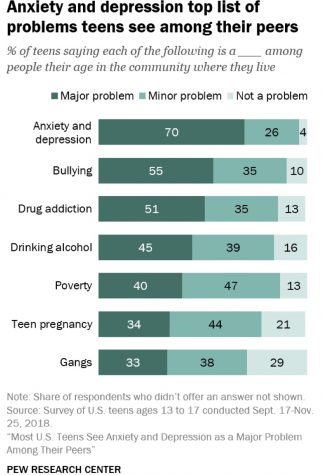
Being in school is even worse than having summer homework, with many students taking five to seven classes a day, there simply isn’t enough time to get everything done. With many students at Rangeview taking honors and AP classes, the workload becomes even worse for them.
“If it’s homework for homework’s sake, or trying to fill up time with skills that haven’t been taught yet, I don’t think [giving homework is] necessary,” said English teacher Sara Bill.
In classes at Rangeview, homework is assigned at a teacher’s discretion, this work adds up for students, and by the end of the day they have hours of work to do.
This isn’t just affecting the time we get to relax, it’s also affecting our health. A study conducted in 2014 found that homework gives students high stress levels and “a lack of balance in children’s lives and physical health problems such as ulcers, migraines, sleep deprivation and weight loss.” It’s getting to the point that a teen’s mental and physical health is in danger—that’s a problem.
We are already spending 8 hours of our day at the school doing work. The last thing any student wants is for that work to follow them home.
Grade Scale:
The grade scale: another way to show students that the work they are doing isn’t good enough. 88% of students in America say that they feel pressured to get good grades. With quizzes, which should only be used to check students’ progress, counting towards a grade, one bad score can lead to an immense drop in a student’s overall grade because of harsher grading.
Sophomore Jake Bonansinga says, “Now that 90 percent is an ‘A,’ [teachers] have to grade a little easier to allow for there to be a chance to get to that 90 percent.”
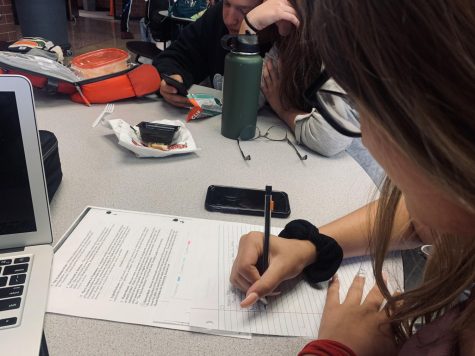
Not only this, but why should the grade scale of a student in an honors or AP class be the same to that of an unweighted class? Honors and AP classes are usually much more rigorous than a regular course; they should be graded differently. While it is important to note that honors and AP students get a weighted GPA, this shouldn’t affect their grade scale.
“The work is easier for a regular class, so it should be easier to get an ‘A’ in that class…it’s kind of unfair that the honors classes have that same scale,” said Bonansinga.
To compare an honors class to a regular course is unfair—if they have different standards, they should have different grading scales too.
Keeping a Full Schedule:
Classes, homework, sports, clubs, community service, school participation—the list could go on for days. From the moment you step foot in RHS as a freshman, you are pressured to participate and be a well rounded student.
Athletes are here for an extra 2 hours after school for practice; even longer for games. Members of clubs are here for at least an hour certain days a week. Leadership students have planning days that can go as late as 10 at night.
Volden says, “Sports and leadership and homework, it’s really hard to balance all three of those time-wise and to try and get some sleep.”

As students, we are aware that colleges want to see a well rounded student who participates in activities rather than just attending school. Not only this, but many are looking for those who are passionate for and talented in a few areas. That’s why it’s important to branch out and to be actively involved at school.
When this involvement, however, detracts from one’s personal needs, it becomes an issue. A survey in 2018 of American teens found that anxiety and depression are most commonly found in teens, from the worry that school gives them.
While students need to be involved, they also need to be taught to take care of themselves.
Solution:
Rather than just teaching students equations, grammar, and history, let’s try to work in time to rest. It is just as important for a student to focus on their mental health as it is for them to complete an assignment. Let’s try to assign less homework, lighten the grade scale, and students space on their schedule for relaxation time.
We need a break—give us a break.
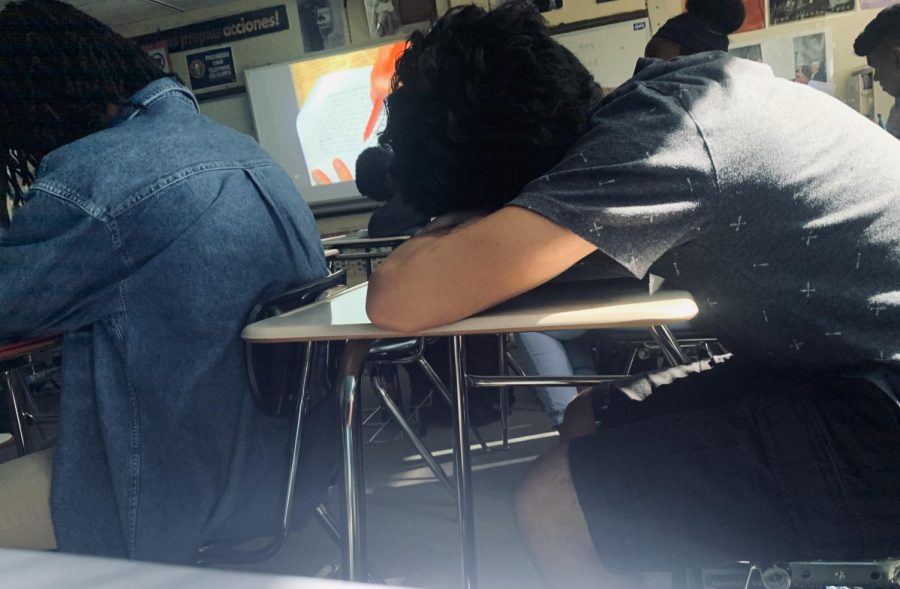









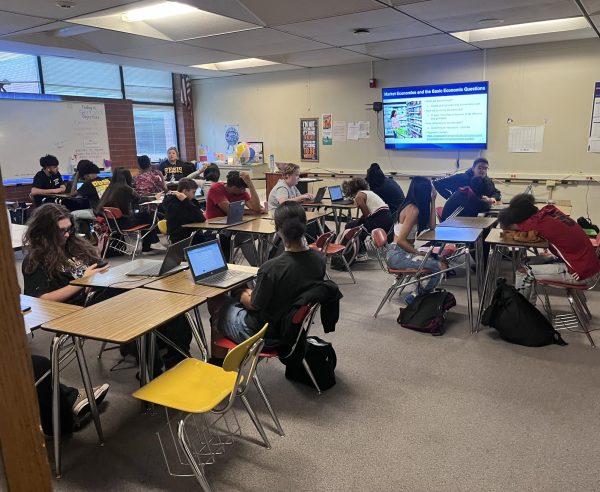

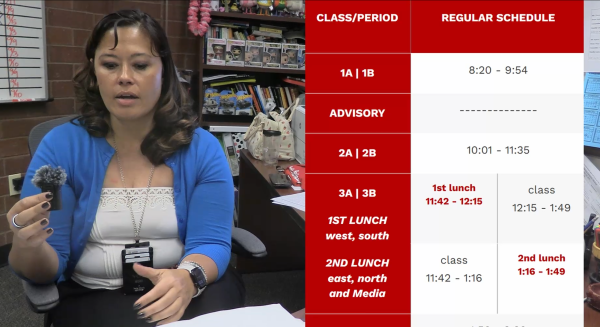

gaurav singh • Dec 17, 2020 at 3:15 AM
Wish to see much more like this. Thanks for sharing your information
Studynlearn
Luis Tinajero • Nov 1, 2019 at 7:04 PM
I LOVE THIS ARTICLE! I like how insightful it is and how the author put so much thought into her topic. She is not only giving students the time to speak but, also teachers.
Halina G Jones • Oct 3, 2019 at 12:47 PM
Joslyn Bowman has shown herself to be exceptionally insightful! This young woman has voiced what many parents in addition to students have been concerned about for many years. Loading up students to the max is not only unhealthy but counter productive in achieving well balanced successful adults. School authorities need to ask themselves, how well would I function if I had the same unrealistic expectations and schedule?
I think they too would loudly voice what Joslyn Bowman has so clearly stated.